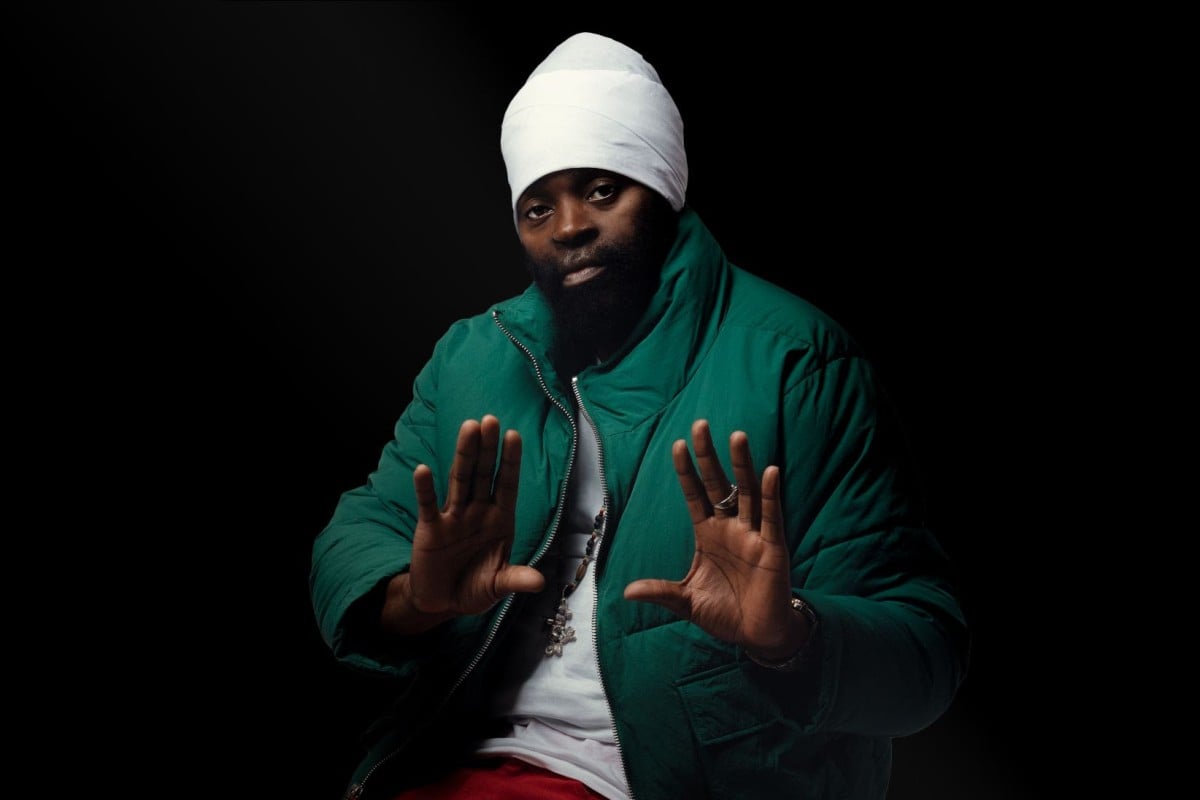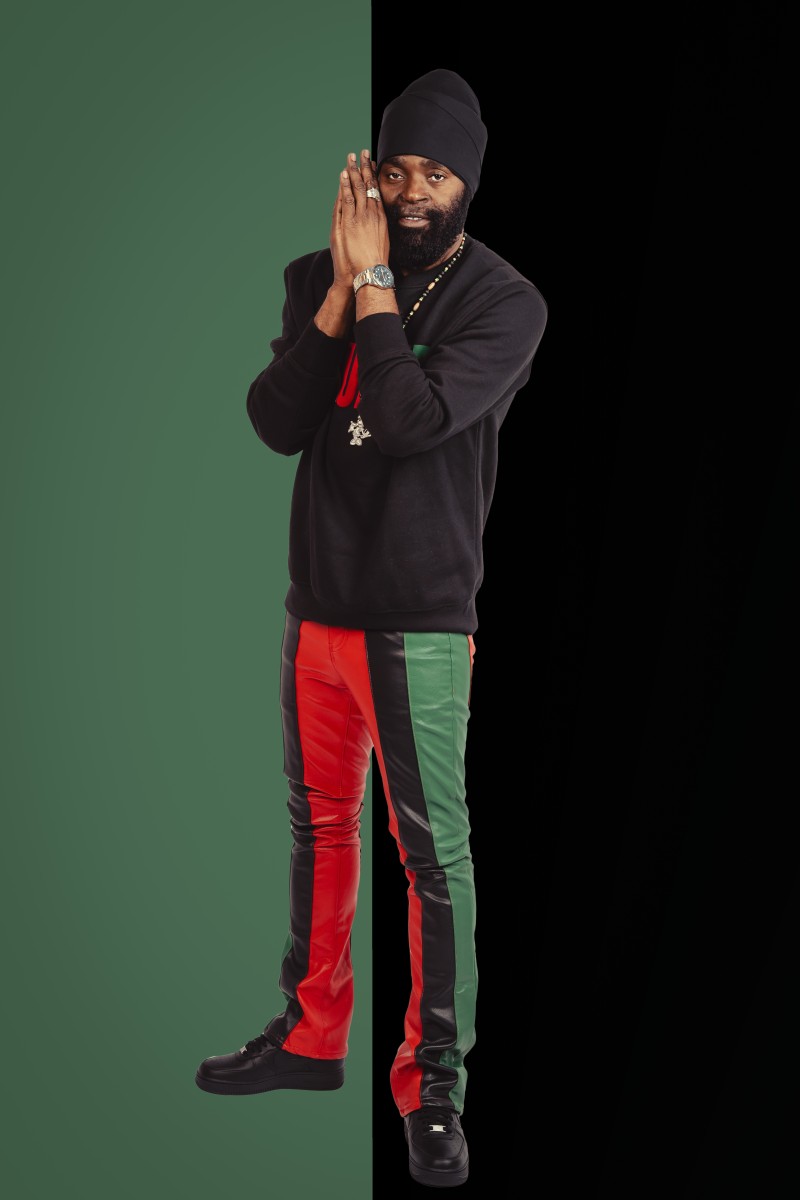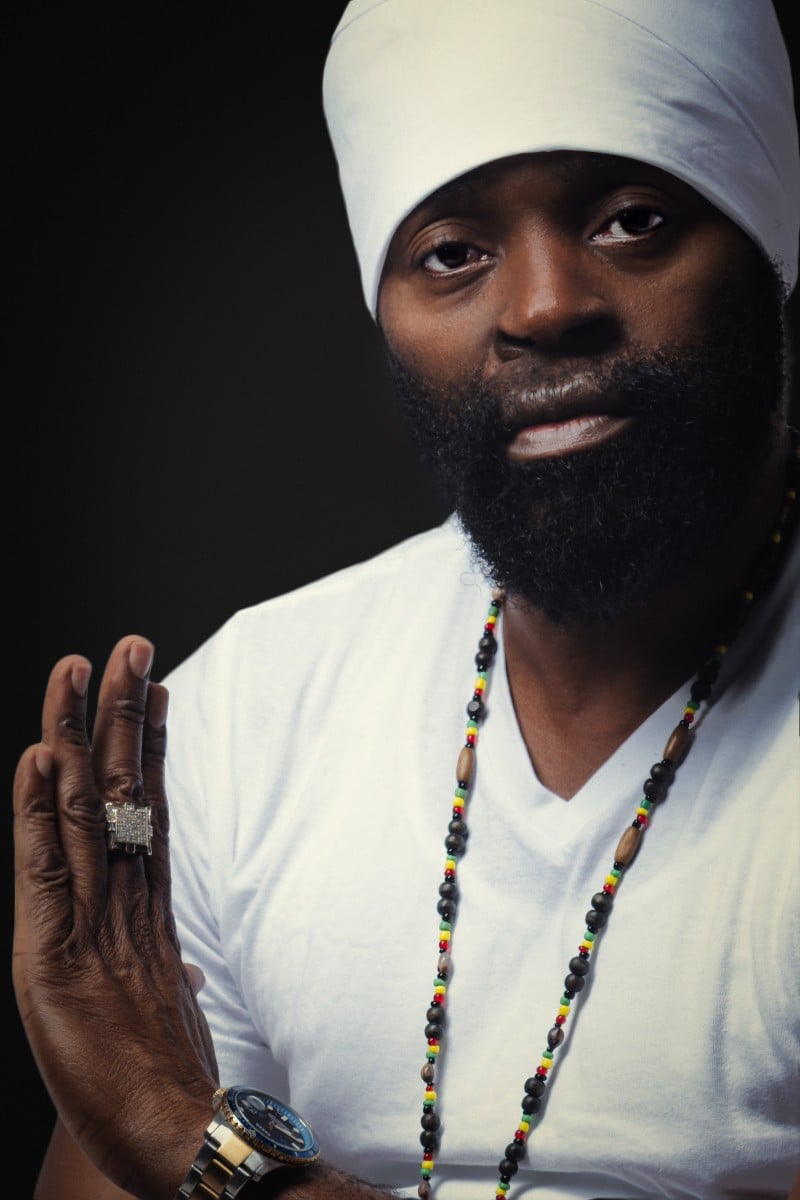Bugle On His Journey To ‘Apex’

Bugle’s fifth studio album, Apex, has a quintessential Reggae feel and delivers intrinsic codes of truth, morality, and inspiration. But the album and its August release were of a deeply divine making, where synchronicities and his spirituality aided a manifestation that represents a culmination of his musical journey thus far.
“Apex now is me a look forward again, pan everything wah gwan inna me career,” Bugle told DancehallMag in an interview at his Kingston studio. “Me say a prayer before me start the album, Jah answer me inna the midst of me praying and me a say I feel like this might be the highest peak a mi career.”
“What other title could be better than Apex and when you look pan the line up weh me get,” he continued. “Junior Gong and Buju Banton that within itself is Apex. Capleton, when last you hear Maxi Priest, ‘Brutal Murderer’ with Barrington Levy, dem song deh – me get the opportunity fi sing pan a song… with Barrington Levy, that is Apex bro!”
The 16-track album covers themes of hope, love, inequality, and loss, set against beautifully constructed beats. Its symbology tells a story of gradual development across almost two decades of professionalism. Bugle credits his self-awareness, hard work, and dedication for carving his path, which began in primary school in Portland.
“The truth is when me wah do music mi nevin know wah mi wah talk bout, mi just know say a supn mi fall in love with and this a from mi a bout 12-years-old,” he recalled.
Bugle said his early style was inspired by legends like Lieutenant Stitchie and Papa San, flipping their songs to reflect his own life. His creativity blossomed, fueled by cassettes his late brother recorded in the ‘80s, featuring artists like Peter Metro. This led to local performances and clashes in his Spring Hill community, earning him the nickname “Country Stitchie.”
“Inna the classroom me a get attention because my peers dem excited bout it because dem never see anything like this before… and me always a disturb the class, literally a disturb the class to the point which part teacher always a move me,” he recalled. “..So mi a move up and down all over inna the class until a school concert come and teacher say ‘you always a disturb mi class say yuh a DJ, see an opportunity deh’ and mi jump at it and go perform and that was it.”
“Mi take it to the youth club inna the community, until me start clash now. And clash a reach other communities cause, yuh know how country set up, you have adjoining communities…So me start clash with the man dem inna the adjoining communities, and that’s how me get the name Country Stitchie…I never forget that day when me get dah name deh and dah name deh live with me to until today, me a still Stitchie when me turn up a Spring Hill inna Portland.”
As Bugle sought growth, he knew he needed to be in Kingston. At 16 or 17, he left Portland without even telling his parents. Once in the city, he rode buses all over, trying to find studios, determined to make it.
“Me a write, a write a whole heap a song… me a go every studio, me a ride every bus, there was a number 6 bus that run through New Kingston weh go a Jacks Hill, one likkle square bus, every bus inna the city me ride cause me affi find the studio dem… we a ride the Waterhouse bus, we a ride the bus dem weh a go a East cause we affi go a Arrows, we a ride the bus dem weh go every weh literally,” he said.
Bugle recalled dozens of aspiring artists outside the door of studios across Kingston, waiting for their opportunity to display their talent inside. He remembered auditioning at Penthouse Studio, where Buju’s engineer Jermaine gave him crucial advice about writing in ‘bars.’ This insight led to deeper connections, including with Shocking Vibes Studio and eventually writing a song for Bounty Killer.
“So me start go round a Shocking Vibes now and me a link up with Shadow dem and Patrick dem and everybody but me and Piranha develop a relationship and become bredrin. Piranha take me as his artist, one a the day dem, this a bout 99/2000 Piranha come link me over Coreville and a say, ‘hear wah gwan nuh, mi wah yuh demo two a dem song deh enuh…we go a studio and demo dem. And Piranna link me back bout three days with Bounty Killer voice a sing one a di song dem and that gimmie one total different perspective on music. That make me know say mi a do supn, mi a nuh just Stitchie from over Portland nuh more. Mi inna the system now because guess wah Bounty Killer just record a song that I wrote,” Bugle said.
All his aspirations were gradually becoming a reality and his song writing became the key to gaining access to a very cliquish dancehall/reggae network. But in many ways it triggered the next phase of Bugle’s journey where he was now empowered to do more and going deeper with said network led to partnerships with Elephant Man.
“Me start link with Elephant Man through another producer from Anchor Studio this time weh name Dr Marshall…him love me writing so much him say a you mi wah write the song fi Elephant Man, mi demo the song again and leff it inna the studio and deh a mi yard one Saturday and Marshall call me and say somebody wah talk to you and then ‘Ele’ come pan the phone and say yute, yuh a di baddest ting, weh yuh deh, yo take a cab and come link we now…Ele start link me a Coreville everyday and me and him start par, everyday me go link Ele and write song and cook and a just music we a deal with straight everyday until me start tour with Elephant Man…dem time deh mi a do 106 & Park, mi do MTV Red Carpet…just being there with Elephant Man, a open show for him, a dance with him, a write song for him. I was one of the main persons behind Elephant Man music where writing is concerned and being apart of his performance and apart of his entourage, mi a dance and a do everything, mi a help Elephant Man ting feel great and look great,” he said.
“I was apart of that…but when 2004 forward now, mi ting change cause all a dem people deh know me as an artist but me become a dancer, opener and a back up singer and that anu wah my mother a expect of me and there was nothing forth coming for my career. So mi make a decision while I was on tour with Elephant man, say mi nah go do this nuh more cause this a nuh fi me, this anuh Bugle, me suppose to be Bugle.”
Bugle today has become a staple within reggae music and much like his past, where his work ethic and belief drove his talents to new heights, Apex possesses the same element. Rhythmic and unique staccato chords layer the compositions with well timed call and response techniques that compliment his distinctive raspy tone. And there is a virtuous simplicity that speaks to the soul with self-surrendering emotions, to which he infuses thoughtful lyrics. The album also features the likes of Tifa, Chaps, Rorystonelove, GiHRL, Military Man and Ras Shadai. Bugle exemplifies the albums message through his own life and challenges faced however at the foundation of all his achievements, is spirituality and prayer.
“Mi pray and that lead me to this album…Greater is in me than me of this world, So wah coulda inna me weh greater than this world it affi be Jah himself. This suppose to feel like a Jah himself a talk to people when people really get into the album so my spiritual connection is deep,” he said.
“This a just Jah works and mi done did pray and tell Jah say this is the kind of person I want to be…I want to be a giver…I want to be humanitarian, I want to be one of your upfront warrior dem, pan the battlefield, mi wah win soul fi yuh I want to be anointed. Jah, a me this, a me a one yuh strongest solider… yuh put me yah so fi a reason and yuh gimmie dah power yah weh mi have fi a reason, mi wah use it fi make yuh proud. Mi wah when mi shout out inna the microphone… all the bird dem inna the tree suppose to feel wah me a say…because guess wah a you gimmie dah power yah Jah and mi wah use it pleasing to you in every possible way.”
Stream Apex below.


